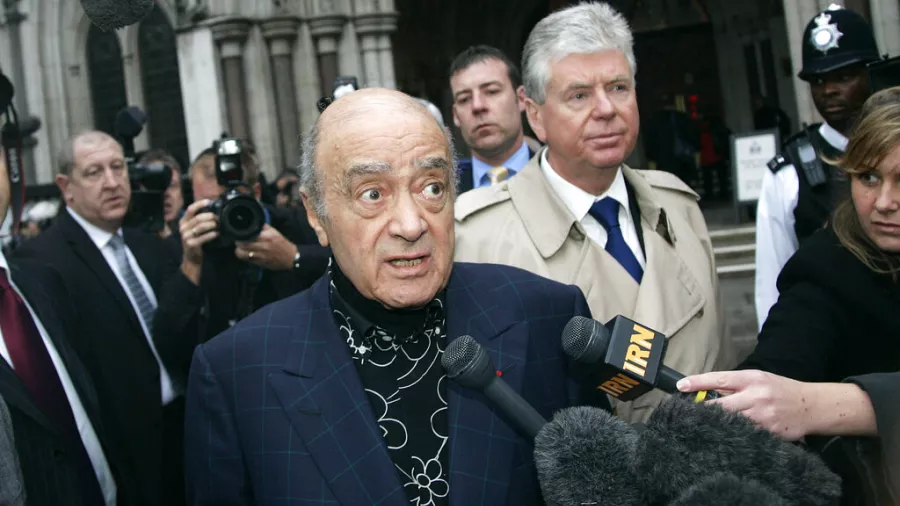Victims call for Harrods boycott over Mohamed Al Fayed abuse allegations
3 min read

In a shocking development, over 400 former employees of Harrods have come forward to accuse the store’s former owner, Mohamed Al Fayed, of sexual abuse. This has prompted victims to urge a boycott of the renowned luxury department store, igniting a public conversation about accountability and justice.
At a press conference organized by the Justice for Harrods Survivors group, individuals shared their harrowing experiences while holding bags adorned with the Harrods logo, visibly crossed out to symbolize their disapproval. The group aims to raise awareness about the alleged abuses that occurred during Al Fayed’s ownership of the iconic store from 1985 to 2010.
According to Bruce Drummond KC, the lawyer representing the survivors, a staggering 421 individuals have reported instances of abuse linked to Al Fayed’s tenure. Drummond characterized the situation as “industrial-scale abuse,” with allegations emerging not only from the UK but also from Canada, Asia, Australia, and other regions. This broad geographical scope highlights the pervasive nature of the claims and the widespread impact on those affected.
Survivors have voiced their frustration with Harrods’ internal investigations, questioning their transparency and effectiveness. Many expressed anger at the store’s historical inaction regarding these serious allegations. They have particularly criticized a settlement scheme that allegedly involved consultants from Al Fayed’s era, raising concerns about its independence and fairness.
Drummond confirmed that the legal process is now underway, with the first of many claims filed against Harrods. This marks a significant step in the fight for justice, as victims seek acknowledgment of their experiences and accountability for those responsible.
The call for a boycott underscores a growing movement among consumers to hold businesses accountable for the actions of their leadership. Victims believe that by boycotting Harrods, they can send a powerful message about the necessity of addressing abuse and fostering a safe environment for employees.
The allegations against Al Fayed are not isolated incidents; they reflect a broader culture of silence and complicity that often surrounds cases of sexual abuse within powerful institutions. Survivors are determined to break this silence, using their collective voice to advocate for change and support one another in the healing process.
As the situation unfolds, it remains to be seen how Harrods will respond to these serious allegations. The store, known for its luxury goods and high-profile clientele, faces significant reputational damage as the narrative of abuse continues to gain traction in the public eye. The allegations challenge the store’s brand image and raise questions about the safety and well-being of its current employees.
This moment represents a turning point, not only for the survivors but also for the broader discourse around workplace safety and accountability. The brave decision of these former employees to come forward and share their stories serves as a crucial reminder of the importance of listening to and believing survivors.
In a world where such abuses often go unreported or ignored, the actions of the Justice for Harrods Survivors group may inspire others to speak out against similar injustices. The push for a boycott is a significant call to action, encouraging consumers to consider the implications of their spending and the values of the brands they support.
As the legal process unfolds, the hope is that more individuals will feel empowered to share their stories and that institutions will take the necessary steps to prevent such abuses from occurring in the future. The fight for justice is far from over, and the growing support for the survivors reflects a shift toward greater awareness and action in the face of serious allegations.
In summary, the allegations against Mohamed Al Fayed have sparked a significant movement among former employees of Harrods, prompting calls for a boycott of the luxury store. With over 400 individuals coming forward to share their experiences, the need for accountability and justice has never been clearer. As this situation develops, it serves as a critical reminder of the importance of addressing abuse and creating safer environments for all employees.